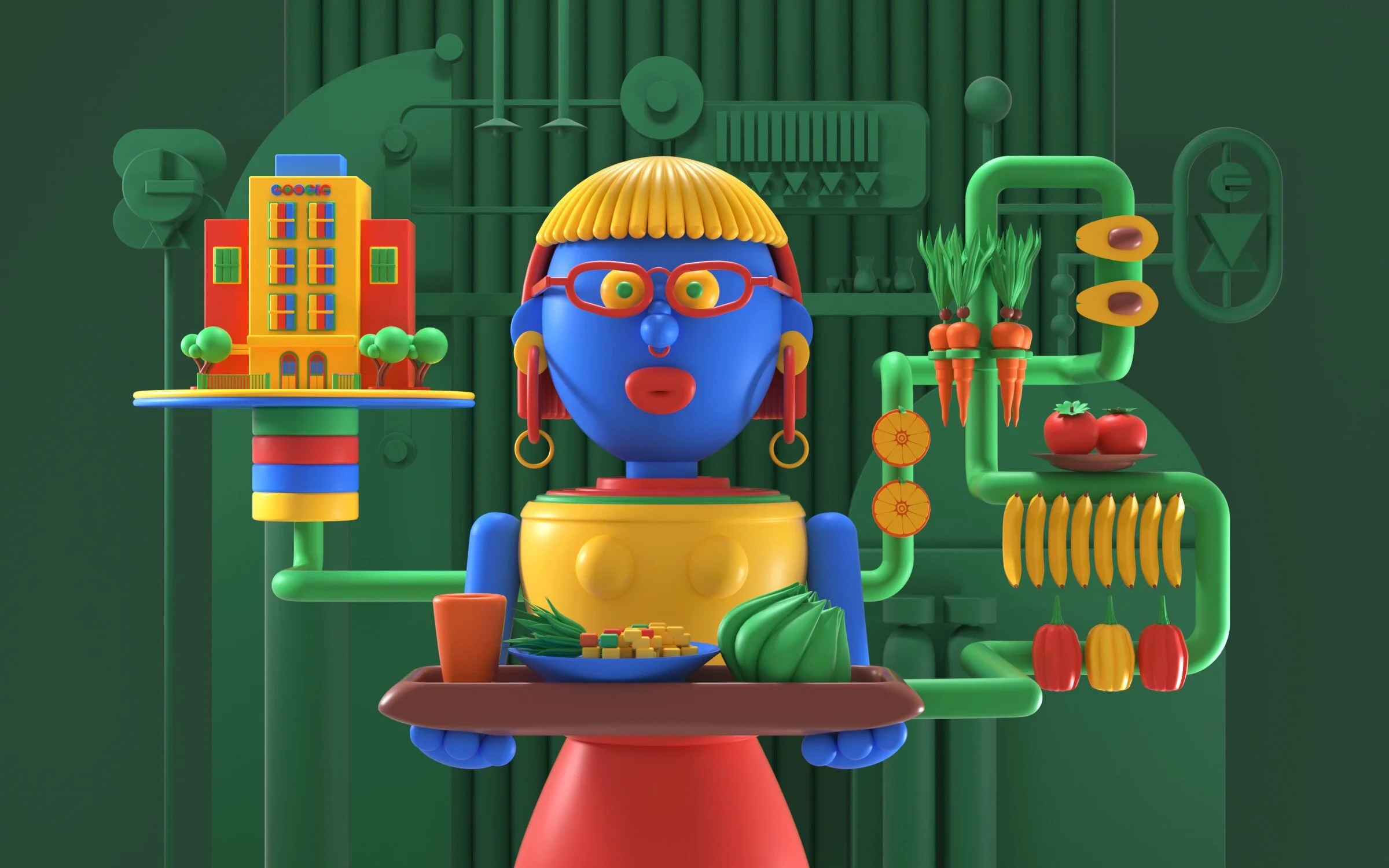I curate articles from around the web that present an interesting perspective or helpful information using technology to improve our wellbeing. Each of these articles were featured in my February 202 newsletter. I send out an update twice a month along with some notes on my latest work. Sign up for my newsletter here.
FEBRUARY
How Google Got Its Employees to Eat Their Vegetables
Oh if we could all work at Google and enjoy one of the key perks, free food. You'd never want to leave, which one of the employees said in this article for OneZero on Medium.
To leave her Google job, she admitted she wouldn't eat as healthy.
"Over the past five years, the company has taken a typically Google-ish approach to the food it serves — methodical, iterative — to create the largest and most ambitious real-world test of how to nudge people to make healthier choices at mealtime. The campaign isn’t changing just the food itself, but how it’s presented."
While we can't all work at Google, the article does highlight a few takeaways. The concept of using your environment to shift behavior is one of the foundations of behavioral science.
As I write about in this microbiome story, nutrition is a personalized experience for both what we want and what is healthy for us. One size fits one.
"What you decide to eat is intimate, complex, cultural, and mostly unconscious. It depends on your personal tastes, your budget, what you pass on your way to work, whether your kids or spouse are picky eaters, and what your peers deem socially acceptable. Most essentially, it’s driven by habits, which, as we know, are hard to break."
Use smaller plates. Don't bring food that doesn't work for you into the house (or make it harder to access). Bring a healthy snack to work and keep visible at your work station. When our cognitive load is high and we are brain tired, we don't make good food choices. Make the environment do the job for you when your brain is low on decision energy.
(And do try and get a chance to eat at one of Google's offices. It's fantastic.)
Why Zebras Don't Get Ulcers
Answering this question was part of understanding the brain's stress responses during our 6-week course with the Institute for Wellness Education, Be Your Own Best Coach.
In this video, Dr. Robert Sapolsky, a Professor of Neurology at Stanford University, explains how Zebras get stressed when being attacked from a predator as lunch food, as you can imagine. Once the threat is gone, the threat processing systems that released the Zebras stress subsides within 10 minutes.
Humans, on the other hand, can't turn it off worrying about climate change, the latest virus, a mortgage, taxes, or mortality. The list goes on and on. The result is the stress response becomes more damaging than the thing they were worried about.
It's the rumination problem of our brilliant brain that can think in the past and anticipate the future. But the rumination on stressors kicks in the survival part of our brain and keeps sending out stress signals to the body which causes long term damage to nearly all systems.
The solution is to build in habits that will help your neurobiology work for you, not against you.
Here's a few ideas we mentioned in the course to help:
Exercise mindfully: Be in your body and breathe
Do rhythmic exercise, like tossing a beanie bag or beach ball, with someone else
Use slow, deep breathing and focus on your breath
Use imagery: Imagine someplace that makes you feel good
P.S. Above & Beyond's Flow State album is currently on high rotation on my Spotify, especially when writing or other focused work. Music is a powerful tool to help set the environment for a flow state, that optimal state of consciousness - one where we feel our best and perform at our best. After seeing Above and Beyond perform in the electronic music atmosphere of Ibiza, Spain, I was immediately drawn to this new album to see what they interpret as Flow State. To quote a selection from the album, "Take one deep breath."
